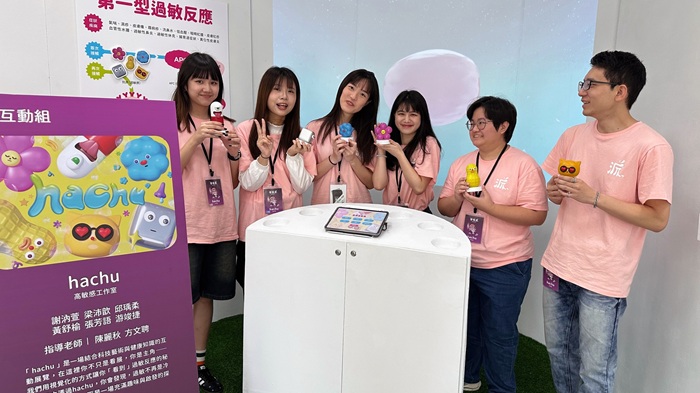The Department of Information Communication at Yuan Ze University achieved remarkable success at the 2025 ISARCH Awards, winning four major awards and standing out among more than 10,000 entries from over 65 countries. According to the newly released global rankings, Yuan Ze University ranked 16th worldwide and 3rd in Taiwan, demonstrating outstanding cross-disciplinary innovation and international competitiveness.
The ISARCH Awards, established by the ISARCH International Organization in Spain, was an international design competition recognized and supported by Taiwan’s Ministry of Education. Covering six major categories—architecture, product, graphic, fashion, digital, and art—it served as an important global benchmark for design and innovation education.
This year, students from the Department of Information Communication received awards for three graduation projects and one cross-media integrated course project. The projects integrated interactive experiences, immersive technologies, generative AI, and humanistic concerns, showcasing the department’s strong foundation and fruitful achievements in digital experience design, interactive media, and innovative technology education. The department had long focused on interactive design, immersive media production, and AI-driven creative education, emphasizing interdisciplinary integration and creative practice, and encouraging students to explore cultural, emotional, and social issues through technology.
Jinhong Deng, Chair of the Department of Information Communication, stated that the award-winning projects not only demonstrated students’ technical and creative capabilities but also reflected the international recognition of Yuan Ze University’s vision for cultivating interdisciplinary innovation talent.
Two projects advised by Jieru Huang received exceptional acclaim.“GLISPER,” created by Ci-Hui Hong, Chia-Jin Wu, Hsin-Ying Tsai, Zhi-Yu Zhang, Jou-Tong Chen, and Wan-Yu Yang, combined AI technology with psychology, fashion, and music. Centered on the theme of “beautiful shame,” the project offered an immersive interactive experience that transformed audiences from observers into runway protagonists, guiding them on a journey of self-exploration and confidence-building.
Another project, “Biolink,” created by Yun-Xiang Tsai, Chia-Chen Chen, Yu-An Chen, Yi-Ling Shen, Xuan-Fang Yuan, and Yu-Hua Xiao, used “microbes” as a metaphor. Through two-person interaction, participants co-cultivated a unique microbial species symbolizing their interpersonal relationship. Employing generative AI to create visual patterns representing the pair’s relationship, the project encouraged participants to move beyond digital communication frameworks and rediscover the value of human connection through conversation and physical interaction.
“Hachu,” created by Ruei-Hsuan Hsieh, Pei-Xin Liang, Yu-Rou Qiu, Shu-Yu Huang, Fang-Yu Zhang, and Jun-Jie You, and advised by Lichiu Chen and Wenpin Fang, presented an interactive exhibition combining technological art and health education. By visualizing allergic reactions, the project transformed medical knowledge into an engaging and enlightening experience, helping participants understand the subtle relationship between the body and emotions.
Another project, “Emotional Drift,” created by Jun-Yu Li, Zhi-Yu Ge, Xing-Yi Jiang, Kojiro Ozaki, Chen-Hao Liao, and Kai-Shao Zhang, and advised by Yen-Zhang Chen, explored emotional communication in digital environments. Using emojis as emotional symbols and integrating GPT-4o technology, the system converted text and emojis into emotionally nuanced responses. It generated personalized emotion cards displayed through water-surface projection, symbolizing the ebb and flow of emotions in the digital world and inviting audiences to reflect on how emotions were interpreted and transmitted in the digital age.
Chair Jinhong Deng emphasized that students from the Department of Information Communication continued to shine on the international stage with projects combining cultural depth and technological foresight. Their achievements illustrated the creative energy of the new generation of designers and reaffirmed the department’s leadership in interactive design, immersive experience development, and generative AI education—further highlighting Yuan Ze University’s strength in promoting interdisciplinary innovation and global engagement.


 繁
繁